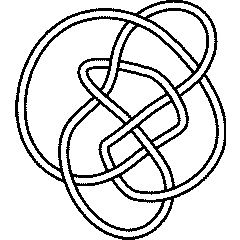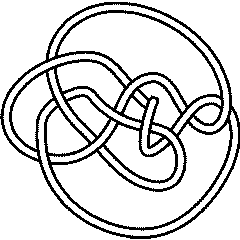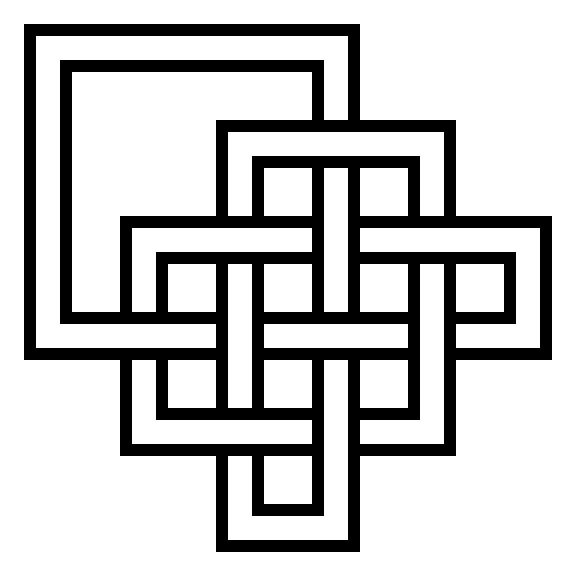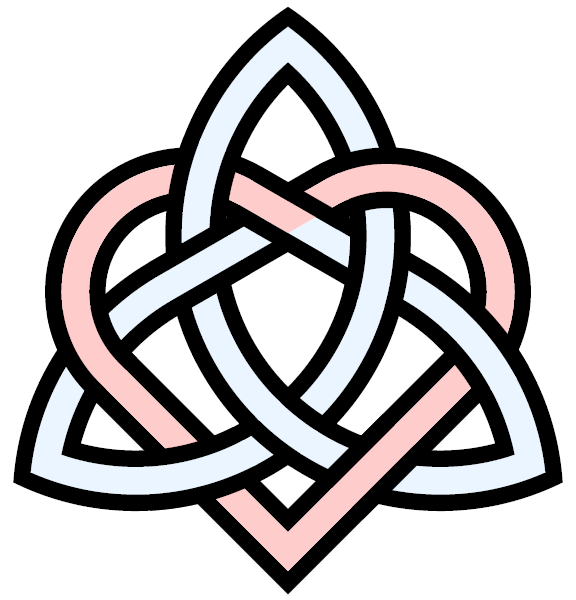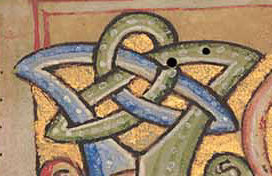10 116: Difference between revisions
No edit summary |
No edit summary |
||
| Line 1: | Line 1: | ||
<!-- --> |
<!-- --> |
||
<!-- --> |
|||
<!-- --> |
|||
<!-- --> |
|||
<!-- provide an anchor so we can return to the top of the page --> |
<!-- provide an anchor so we can return to the top of the page --> |
||
<span id="top"></span> |
<span id="top"></span> |
||
<!-- --> |
|||
<!-- this relies on transclusion for next and previous links --> |
<!-- this relies on transclusion for next and previous links --> |
||
{{Knot Navigation Links|ext=gif}} |
{{Knot Navigation Links|ext=gif}} |
||
| ⚫ | |||
{| align=left |
|||
|- valign=top |
|||
|[[Image:{{PAGENAME}}.gif]] |
|||
| ⚫ | |||
|{{:{{PAGENAME}} Quick Notes}} |
|||
|} |
|||
<br style="clear:both" /> |
<br style="clear:both" /> |
||
| Line 24: | Line 21: | ||
{{Vassiliev Invariants}} |
{{Vassiliev Invariants}} |
||
{{Khovanov Homology|table=<table border=1> |
|||
The coefficients of the monomials <math>t^rq^j</math> are shown, along with their alternating sums <math>\chi</math> (fixed <math>j</math>, alternation over <math>r</math>). The squares with <font class=HLYellow>yellow</font> highlighting are those on the "critical diagonals", where <math>j-2r=s+1</math> or <math>j-2r=s+1</math>, where <math>s=</math>{{Data:{{PAGENAME}}/Signature}} is the signature of {{PAGENAME}}. Nonzero entries off the critical diagonals (if any exist) are highlighted in <font class=HLRed>red</font>. |
|||
<center><table border=1> |
|||
<tr align=center> |
<tr align=center> |
||
<td width=13.3333%><table cellpadding=0 cellspacing=0> |
<td width=13.3333%><table cellpadding=0 cellspacing=0> |
||
| Line 48: | Line 41: | ||
<tr align=center><td>-13</td><td bgcolor=yellow> </td><td bgcolor=yellow>3</td><td> </td><td> </td><td> </td><td> </td><td> </td><td> </td><td> </td><td> </td><td> </td><td>-3</td></tr> |
<tr align=center><td>-13</td><td bgcolor=yellow> </td><td bgcolor=yellow>3</td><td> </td><td> </td><td> </td><td> </td><td> </td><td> </td><td> </td><td> </td><td> </td><td>-3</td></tr> |
||
<tr align=center><td>-15</td><td bgcolor=yellow>1</td><td> </td><td> </td><td> </td><td> </td><td> </td><td> </td><td> </td><td> </td><td> </td><td> </td><td>1</td></tr> |
<tr align=center><td>-15</td><td bgcolor=yellow>1</td><td> </td><td> </td><td> </td><td> </td><td> </td><td> </td><td> </td><td> </td><td> </td><td> </td><td>1</td></tr> |
||
</table> |
</table>}} |
||
{{Computer Talk Header}} |
{{Computer Talk Header}} |
||
| Line 149: | Line 141: | ||
q t + 3 q t + q t</nowiki></pre></td></tr> |
q t + 3 q t + q t</nowiki></pre></td></tr> |
||
</table> |
</table> |
||
[[Category:Knot Page]] |
|||
Revision as of 20:10, 28 August 2005
|
|
|
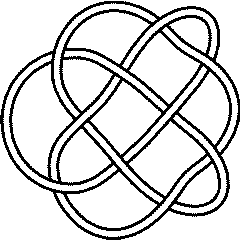
|
Visit 10 116's page at the Knot Server (KnotPlot driven, includes 3D interactive images!)
Visit 10 116's page at Knotilus! Visit 10 116's page at the original Knot Atlas! |
Knot presentations
| Planar diagram presentation | X6271 X16,3,17,4 X14,7,15,8 X8,15,9,16 X10,18,11,17 X18,6,19,5 X20,13,1,14 X12,19,13,20 X2,10,3,9 X4,11,5,12 |
| Gauss code | 1, -9, 2, -10, 6, -1, 3, -4, 9, -5, 10, -8, 7, -3, 4, -2, 5, -6, 8, -7 |
| Dowker-Thistlethwaite code | 6 16 18 14 2 4 20 8 10 12 |
| Conway Notation | [8*2:2] |
Three dimensional invariants
|
Four dimensional invariants
|
Polynomial invariants
A1 Invariants.
| Weight | Invariant |
|---|---|
| 1 | |
| 2 | |
| 3 | |
| 5 | |
| 6 |
A2 Invariants.
| Weight | Invariant |
|---|---|
| 1,0 | |
| 1,1 | |
| 2,0 |
A3 Invariants.
| Weight | Invariant |
|---|---|
| 0,1,0 | |
| 1,0,0 | |
| 1,0,1 |
A4 Invariants.
| Weight | Invariant |
|---|---|
| 0,1,0,0 | |
| 1,0,0,0 |
B2 Invariants.
| Weight | Invariant |
|---|---|
| 0,1 | |
| 1,0 |
D4 Invariants.
| Weight | Invariant |
|---|---|
| 1,0,0,0 |
G2 Invariants.
| Weight | Invariant |
|---|---|
| 1,0 |
.
KnotTheory`, as shown in the (simulated) Mathematica session below. Your input (in red) is realistic; all else should have the same content as in a real mathematica session, but with different formatting. This Mathematica session is also available (albeit only for the knot 5_2) as the notebook PolynomialInvariantsSession.nb.
(The path below may be different on your system, and possibly also the KnotTheory` date)
In[1]:=
|
AppendTo[$Path, "C:/drorbn/projects/KAtlas/"];
<< KnotTheory`
|
Loading KnotTheory` version of August 31, 2006, 11:25:27.5625.
|
In[3]:=
|
K = Knot["10 116"];
|
In[4]:=
|
Alexander[K][t]
|
KnotTheory::loading: Loading precomputed data in PD4Knots`.
|
Out[4]=
|
In[5]:=
|
Conway[K][z]
|
Out[5]=
|
In[6]:=
|
Alexander[K, 2][t]
|
KnotTheory::credits: The program Alexander[K, r] to compute Alexander ideals was written by Jana Archibald at the University of Toronto in the summer of 2005.
|
Out[6]=
|
In[7]:=
|
{KnotDet[K], KnotSignature[K]}
|
Out[7]=
|
{ 95, -2 } |
In[8]:=
|
Jones[K][q]
|
KnotTheory::loading: Loading precomputed data in Jones4Knots`.
|
Out[8]=
|
In[9]:=
|
HOMFLYPT[K][a, z]
|
KnotTheory::credits: The HOMFLYPT program was written by Scott Morrison.
|
Out[9]=
|
In[10]:=
|
Kauffman[K][a, z]
|
KnotTheory::loading: Loading precomputed data in Kauffman4Knots`.
|
Out[10]=
|
Vassiliev invariants
| V2 and V3: | (0, 0) |
| V2,1 through V6,9: |
|
V2,1 through V6,9 were provided by Petr Dunin-Barkowski <barkovs@itep.ru>, Andrey Smirnov <asmirnov@itep.ru>, and Alexei Sleptsov <sleptsov@itep.ru> and uploaded on October 2010 by User:Drorbn. Note that they are normalized differently than V2 and V3.
Khovanov Homology
| The coefficients of the monomials are shown, along with their alternating sums (fixed , alternation over ). The squares with yellow highlighting are those on the "critical diagonals", where or , where -2 is the signature of 10 116. Nonzero entries off the critical diagonals (if any exist) are highlighted in red. |
|
| Integral Khovanov Homology
(db, data source) |
|
Computer Talk
Much of the above data can be recomputed by Mathematica using the package KnotTheory`. See A Sample KnotTheory` Session.
In[1]:= |
<< KnotTheory` |
Loading KnotTheory` (version of August 17, 2005, 14:44:34)... | |
In[2]:= | Crossings[Knot[10, 116]] |
Out[2]= | 10 |
In[3]:= | PD[Knot[10, 116]] |
Out[3]= | PD[X[6, 2, 7, 1], X[16, 3, 17, 4], X[14, 7, 15, 8], X[8, 15, 9, 16],X[10, 18, 11, 17], X[18, 6, 19, 5], X[20, 13, 1, 14],X[12, 19, 13, 20], X[2, 10, 3, 9], X[4, 11, 5, 12]] |
In[4]:= | GaussCode[Knot[10, 116]] |
Out[4]= | GaussCode[1, -9, 2, -10, 6, -1, 3, -4, 9, -5, 10, -8, 7, -3, 4, -2, 5, -6, 8, -7] |
In[5]:= | BR[Knot[10, 116]] |
Out[5]= | BR[3, {-1, -1, 2, -1, -1, 2, -1, 2, -1, 2}] |
In[6]:= | alex = Alexander[Knot[10, 116]][t] |
Out[6]= | -4 5 12 19 2 3 4 |
In[7]:= | Conway[Knot[10, 116]][z] |
Out[7]= | 4 6 8 1 - 2 z - 3 z - z |
In[8]:= | Select[AllKnots[], (alex === Alexander[#][t])&] |
Out[8]= | {Knot[10, 116], Knot[11, Alternating, 7], Knot[11, Alternating, 33],
Knot[11, Alternating, 82]} |
In[9]:= | {KnotDet[Knot[10, 116]], KnotSignature[Knot[10, 116]]} |
Out[9]= | {95, -2} |
In[10]:= | J=Jones[Knot[10, 116]][q] |
Out[10]= | -7 4 8 12 15 16 15 2 3 |
In[11]:= | Select[AllKnots[], (J === Jones[#][q] || (J /. q-> 1/q) === Jones[#][q])&] |
Out[11]= | {Knot[10, 116]} |
In[12]:= | A2Invariant[Knot[10, 116]][q] |
Out[12]= | -20 2 2 2 2 3 4 3 3 2 4 |
In[13]:= | Kauffman[Knot[10, 116]][a, z] |
Out[13]= | 2z 3 5 2 z 2 2 4 2 6 2 |
In[14]:= | {Vassiliev[2][Knot[10, 116]], Vassiliev[3][Knot[10, 116]]} |
Out[14]= | {0, 0} |
In[15]:= | Kh[Knot[10, 116]][q, t] |
Out[15]= | 7 9 1 3 1 5 3 7 5 |
